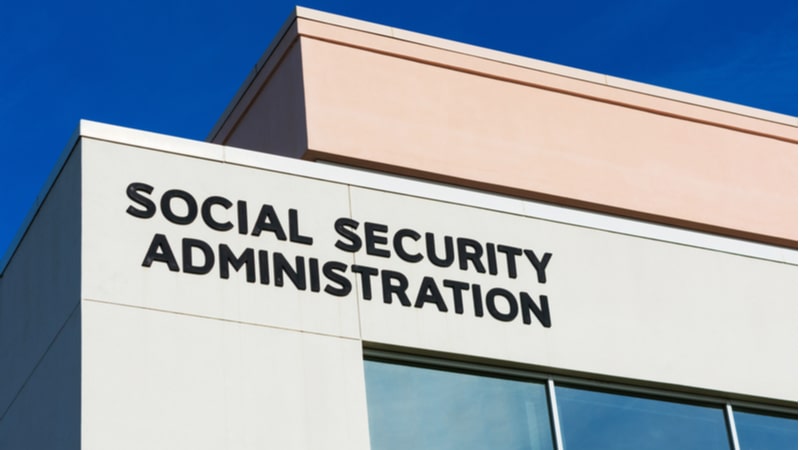
The Social Security Administration (SSA) needs to develop strategies to expand the use of its real-time electronic identity verification system after not meeting projections for expected industry participation and lagging behind on expected cost recoveries, the Government Accountability Office (GAO) said in a report issued today.
Required by the Economic Growth, Regulatory Relief, and Consumer Protection Act of 2018 to modify its verification services to provide real-time electronic identify verification, SSA’s Electronic Consent Based Social Security Number Verification (eCBSV) service addresses synthetic identity fraud – which combines both real and fake personally identifiable information.
Synthetic identity scams have caused $128 million in financial losses in 2021, GAO reported.
“Synthetic identities may be difficult for financial institutions to detect and can go unnoticed for years,” GAO said. “Fraudsters may create a synthetic identity to open a credit card, make on-time payments to build a positive credit history, and gradually increase their credit limit. They may then accumulate large amounts of debt they never intend to repay.”
SSA has fallen short of fee collection projections from financial institutions using its service, said GAO, with the agency having spent $62 million on building and deploying its system since its launch in June 2020.
SSA had only recovered $25 million in user fees by the end of fiscal year 2023, leaving it far from covering its costs.
GAO identified industry’s low use of the system as being a driving factor behind the agency’s low cost-recovery total, noting that 77 percent of financial institutions that signed up to use the service in its pilot phase never enrolled. Instead, GAO found that 19 of 22 direct users of the service submitted transactions on behalf of 946 financial institutions in fiscal year 2023, allowing institutions to indirectly use the service without incurring costs.
The watchdog traced indirect use of the service to SSA’s use-fee increases – a move that SSA refused to seek public comment on, according to GAO.
“We have previously reported that agencies that do not communicate effectively with stakeholders miss opportunities for meaningful feedback that could affect the outcome of changes in fees and program implementation,” said GAO. “By establishing a process for soliciting input on proposed changes to eCBSV’s user fees, SSA could receive useful feedback, foster greater understanding and acceptance, and garner support from eCBSV users and other stakeholders.”
To help it improve cost recovery, GAO provided seven recommendations to the agency, including implementing IT investment controls, establishing performance measures and goals, and updating guidance to incorporate additional best practices to improve cost estimation for future projects.
SSA agreed with all recommendations and stated in an incorporated letter that it “engaged the financial industry throughout the development and rollout of this service, and we remain committed to continued communication to improve this service.”
